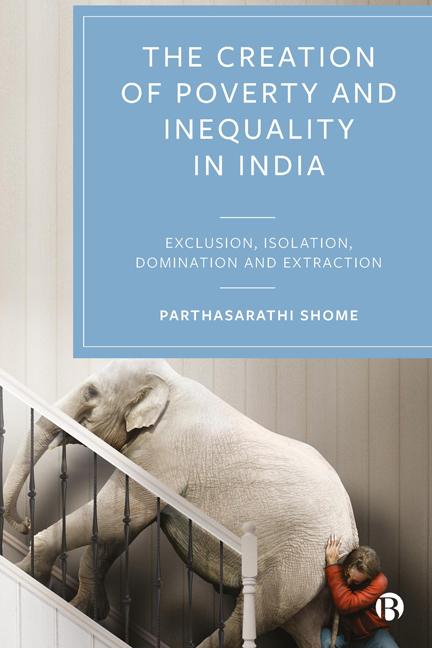Book contents
- Frontmatter
- Dedication
- Contents
- List of Figures and Tables
- Preface
- 1 Introduction
- Part I Macro-Economy and Human Development
- Part II Sources of Inequality and Poverty
- Part III Sectoral Effects
- Part IV Radical Humanism
- Appendix 2.1 Cash Use in India: A Cross-Country Comparison
- Appendix 2.2 Macro-Economic Comparisons: Selected Economies
- Appendix 4.1 Selected Country Tables
- Appendix 5.1 Evidence on Inequality in the US
- Appendix 8.1 Impact of Land Policy
- Appendix 11.1 Impact of Asset Transfer on the Poor
- Index
10 - Nutrition, Health, Sanitation, Water and Climate Change
Published online by Cambridge University Press: 18 January 2024
- Frontmatter
- Dedication
- Contents
- List of Figures and Tables
- Preface
- 1 Introduction
- Part I Macro-Economy and Human Development
- Part II Sources of Inequality and Poverty
- Part III Sectoral Effects
- Part IV Radical Humanism
- Appendix 2.1 Cash Use in India: A Cross-Country Comparison
- Appendix 2.2 Macro-Economic Comparisons: Selected Economies
- Appendix 4.1 Selected Country Tables
- Appendix 5.1 Evidence on Inequality in the US
- Appendix 8.1 Impact of Land Policy
- Appendix 11.1 Impact of Asset Transfer on the Poor
- Index
Summary
Introduction
In this chapter, we selectively examine the significance of nutrition and health as well as the role of clean water, for example, what is likely to happen to the poor if natural resources such as water are insufficiently available to them; what is the extent of food security and its effects on nutrition and health including on the urban poor? How do urban pollution and the lack of sanitary facilities affect the poor? And how forest inhabitants’ flailing rights impinge directly on the poor. Some of India's new laws created legal entitlements over discretionary disbursements and demarcated new identification markers for beneficiaries (Chiriyankandath et al., 2020). Were they sufficient? These are some of the questions that will be addressed.
Nutrition and health
Under a Common Minimum Programme (CMP), India's United Progressive Alliance (UPA-I) government (2004– 09) introduced a number of social insurance measures reflecting a Right to Food Campaign (RFC) that included the universalization of an existing midday meal programme, the Mahatma Gandhi National Rural Employment Guarantee Act (MGNREGA) and the Forest Rights Act. In its second term, the United Progressive Alliance government (UPA-II, 2009– 14) introduced additional programmes including the National Food Security Act (NFSA) and a reform of child development. By then, important architects of the earlier programmes had left, and the new efforts came under critical expert examination. Desai and Vanneman (2015) have assessed that they were not successful in expanding India's Public Distribution System (PDS) targeted to poor households or in strengthening the Integrated Child Development Scheme (ICDS) for child nutrition. Access to subsidized grains via the PDS was not linked to improved child nutrition, and the ICDS had a limited reach despite its universal application. The authors proposed that such programmes should begin with the identification of undernourished children and districts where they were located. This should be followed up with targeting severe and moderate malnutrition, rather than merely focusing on cereal distribution as was the case with the NFSA. Chiriyankandath et al. (2020) argued that a good part of the explanation of their relative lack of success was political, the UPA-II coalition being less assertive than UPA-I.
- Type
- Chapter
- Information
- The Creation of Poverty and Inequality in IndiaExclusion, Isolation, Domination and Extraction, pp. 235 - 256Publisher: Bristol University PressPrint publication year: 2023



